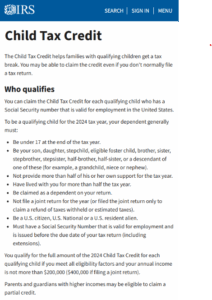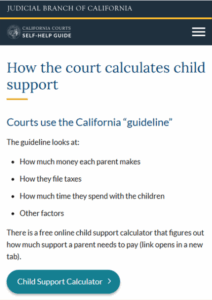Who gets to claim the kids as dependents?
Raising kids is one of the most rewarding parts of life, but it also comes with big responsibilities, including your time, your energy, and your financial support.
Those responsibilities can feel even heavier during or after a divorce.
You might already be juggling a lot, managing a parenting schedule, paying bills, and making sure your kids have what they need. Then tax season rolls around, and there’s another big question on the table: Who gets to claim the kids as dependents?
When you’re sharing custody with the other parent, every dollar matters.
It’s not just about a line on a tax form. That one decision can affect your tax refund, your monthly finances, and even how child support is calculated.
For separated or divorced parents, the rules can feel confusing, and the stakes are high.
At Fontes Law Group, our experienced family lawyers help families across Southern California, both English and Spanish speaking, understand how the law applies to their situation so they can protect their financial stability and their children’s well-being.
What Is a Dependency Exemption?
 In the simplest terms, a dependency exemption is a tax benefit you can claim for a qualifying child or dependent. The IRS defines a qualifying child as someone who meets certain criteria for relationship, age, residency, and support.
In the simplest terms, a dependency exemption is a tax benefit you can claim for a qualifying child or dependent. The IRS defines a qualifying child as someone who meets certain criteria for relationship, age, residency, and support.
Claiming a dependency exemption (or, in more recent years, the child tax credit) can lower your taxable income, which means you could owe less in taxes or get a larger refund.
Under current IRS rules, the dependency exemption itself was reduced to zero in 2018 due to changes in federal tax law, but claiming a dependent still matters because it affects eligibility for:
- The Child Tax Credit
- The Earned Income Tax Credit (EITC)
- Head of Household filing status
- Education credits
For more details on the IRS definition of a qualifying child, see the IRS guidelines here.
Why It Matters in a Divorce or Separation
When parents are together, there’s no question, dependents are claimed on the same joint tax return.
But when parents are divorced or separated, only one parent can claim the child in a given tax year.
This can become a point of conflict because the tax benefit can be significant. The parent who claims the child often gets a lower tax bill, a bigger refund, or access to credits the other parent can’t use that year.
How the IRS Decides Who Can Claim the Child
The IRS has clear rules for determining which parent can claim the dependent if there’s a dispute. Generally:
- The parent with whom the child lived the longest during the year gets the claim.
- If the child lived with each parent for the same amount of time, the parent with the higher adjusted gross income (AGI) gets the claim.
This is sometimes called the “custodial parent rule” and it applies even if a court order says something different, unless the custodial parent signs a written release using IRS Form 8332.
California Child Support and Tax Dependency
 Here’s where it gets tricky: While the IRS rules decide who gets the tax benefits, California family courts can decide who is entitled to claim a child for tax purposes in a divorce judgment or parenting agreement.
Here’s where it gets tricky: While the IRS rules decide who gets the tax benefits, California family courts can decide who is entitled to claim a child for tax purposes in a divorce judgment or parenting agreement.
In many cases, the court will allow parents to alternate years or assign the claim to the parent who provides more direct financial support. This is because claiming a dependent can offset some of the costs of raising a child, and the court aims to balance that benefit.
You can review California’s child support calculation guidelines on the California Courts self-help site.
The Link Between Dependency Claims and Child Support
Child support in California is calculated using a statewide formula that considers both parents’ incomes, how much time the child spends with each parent, and certain deductions. Claiming a dependent doesn’t directly change the amount of support owed, but it can:
- Affect net income for tax purposes, which may impact support calculations in future modifications
- Influence settlement negotiations, especially if one parent stands to gain a larger refund by claiming the child
For example:
if a parent claims the child and gets a larger tax refund, that money could be factored into their overall ability to contribute to child-related expenses.
Common Agreements in Parenting Plans
When we help clients finalize a divorce or custody agreement, we often see these arrangements:
1. Alternating Years
Parent A claims the child in odd-numbered years, Parent B in even-numbered years.
2. Splitting Multiple Children
Each parent claims one child every year (if there’s more than one), then alternates when the number of children changes.
3. Income-Based Assignment
The parent who benefits most from the tax credit claims it, sometimes in exchange for other concessions in property division or support.
The key is to have this written clearly in your court orders. Without it, the IRS rules will decide and that may not match what you intended.
What Happens If Both Parents Claim the Same Child?
If both parents file their taxes claiming the same dependent, the IRS will flag the returns. This can trigger:
- Delays in processing both refunds
- An IRS audit request for proof of custody and residency
- Potential penalties if the claim was knowingly incorrect
The parent who doesn’t meet the IRS criteria will have to amend their tax return, which can mean paying back part of the refund plus interest.
Practical Tips to Avoid Problems When Claiming Dependents After Divorce
If you’re separated or divorced in California, here’s how to prevent tax season headaches:
Put it in writing
Have your agreement or court order state clearly who will claim the dependent each year.
Use IRS Form 8332 if needed
This lets the custodial parent officially release the claim for that year.
Communicate early
Talk about tax plans well before filing season.
Keep records
Document where the child lived, who paid for major expenses, and any agreements made.
How Fontes Law Group Can Help
At Fontes Law Group, we’ve guided many parents through this exact situation. We know it’s not just about taxes, it’s about making sure you can provide for your children and keep your financial life stable.
We take the time to:
- Review your parenting plan or court orders for clarity on dependency claims
- Negotiate fair arrangements that reflect your financial reality
- Represent you in court if there’s a dispute over the right to claim dependents
- Explain how these tax benefits fit into the bigger picture of child support and custody
With offices in Santa Ana and Riverside, we serve families across Southern California in English and Spanish, making sure language isn’t a barrier to understanding your rights.
FAQs on Dependency Exemptions in Divorce
1. Can child support orders decide who gets the dependency exemption?
Yes. California courts can assign the right to claim a child in a divorce or custody judgment.
2. What if my ex claims the child when it’s my turn?
You can file your taxes with your rightful claim, but expect the IRS to request documentation. You may also need to return to court to enforce your agreement.
3. Does the IRS always follow the court order?
Not automatically. The IRS follows federal law first, so the custodial parent must release the claim with Form 8332 if the noncustodial parent is to claim the child.
4. What if we each have 50/50 custody?
The parent with the higher adjusted gross income generally gets the claim unless a court order states otherwise.
5. How do tax credits affect my child support?
They don’t directly change the current support amount, but they can affect future calculations during modifications.
Bottom Line
Claiming a dependent after a divorce isn’t just about taxes, it’s about real money in your pocket and your ability to support your kids. The rules can be complex, and mistakes can cost you.
At Fontes Law Group, our mission is to help you navigate these decisions with confidence and clarity. Whether you’re negotiating a new parenting plan or dealing with a dispute over last year’s return, we’re here to protect your rights and your family’s financial future.
Need help understanding your options? Fontes Law Group offers bilingual legal support across Southern California. Call us today to schedule a consultation.
